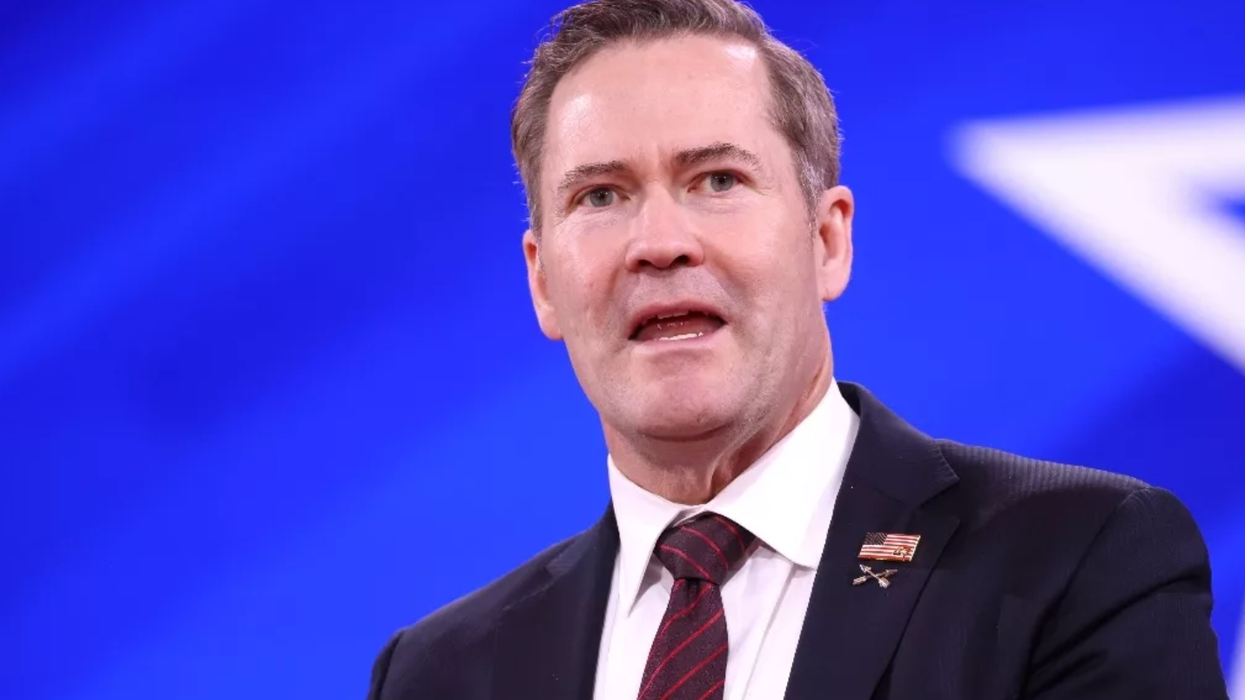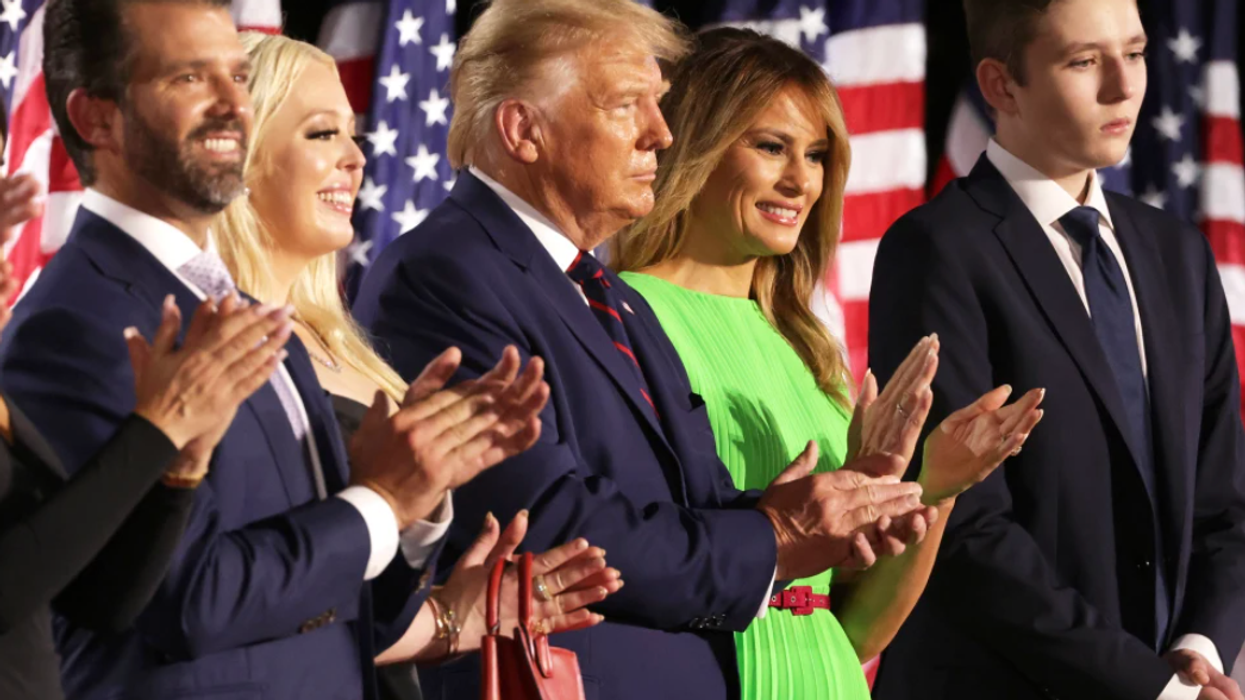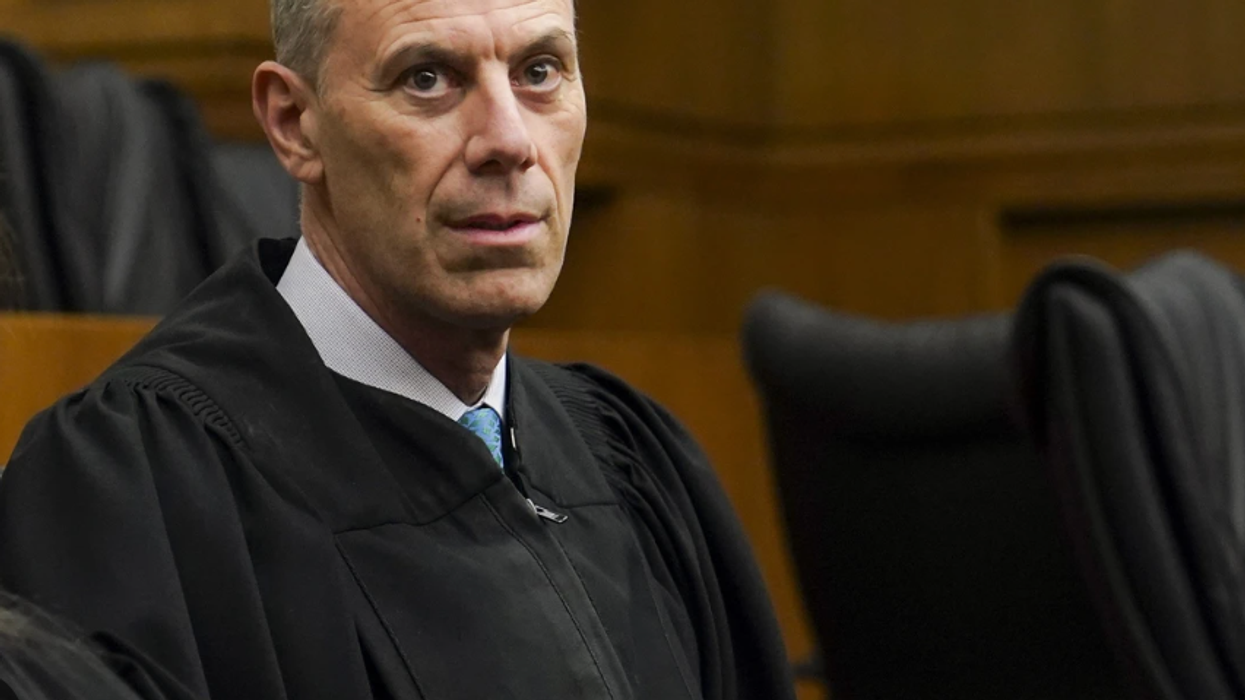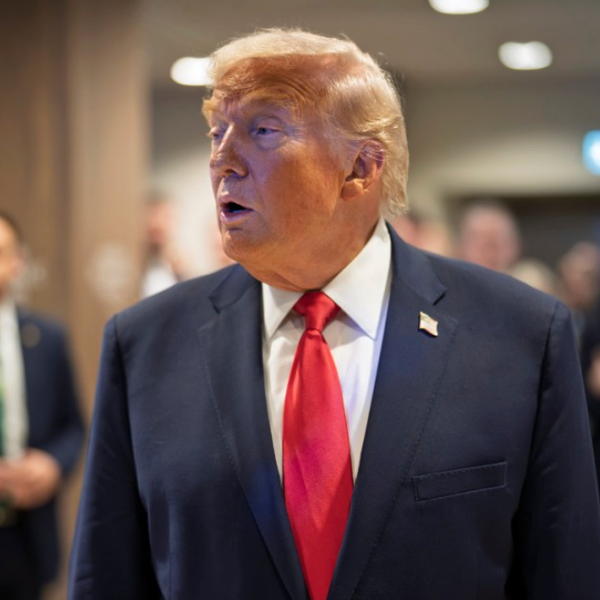At his abomination in the Department of Justice last week, Donald Trump waxed scholarly: "Etched onto the walls of this building are the words English philosopher John Locke said: 'Where law ends, tyranny begins.' And I see that."
He doesn't just see it; he embodies it.
Trump’s administration has pushed relentlessly to exercise emergency powers beyond the normal bounds of the law and to argue that his authority must be beyond review.
The last two weeks have revealed Trump’s chief legal strategy for the outlandish expansion of his own power. Wherever tenable—and in many instances where it isn’t—Trump’s preferred gambit is to argue that he needs outsized and, in any other setting, unconstitutional authority due to emergency circumstances or extreme risks to national security. He aims to leverage legal theory that provides, at least in the minds of certain conservative thinkers, a license for otherwise unconstitutional conduct and, most importantly, a suspension of the normal assumption of judicial review.
Trump’s outlandish invocation of the Alien Enemies Act of 1798 is the latest example. That statute, which grants the President certain powers in times of declared war, invasion, or predatory incursion by a foreign nation or government, has been invoked only three times in our history: the War of 1812, World War I, and World War II.
Trump’s clumsy attempt to use it to justify the arrest and removal of all Venezuelan members of the transnational criminal organization Tren de Aragua shouldn’t even get out of the gate. The group is not a foreign nation or government. Trump’s proclamation says, without support, that the group is acting at the direction of the Venezuelan government, but so what? Neither the text nor the spirit of the act remotely supports what Trump is trying to do with it—namely, fight an international drug cartel.
Chief Judge Jed Boasberg had little trouble swatting away the argument. Boasberg wrote that the AEA "does not provide a basis for the president's proclamation given that the terms invasion, predatory incursion really relate to hostile acts perpetrated by any nation and commensurate to war."
The Administration’s arguments in the AEA case are part of a much broader theme. Trump is repeatedly citing existential threats to our national security in order to assert insanely broad powers while restricting the ability of the courts to second-guess him.
It’s essentially the same argument he’s using to blackball law firms that have represented his enemies. Trump’s orders assert that these firms have engaged in “dangerous activity” that poses security risks to the nation. He argues that the firm representing Hillary Clinton during the 2016 campaign “undermin[ed] democratic elections, the integrity of our courts, and honest law enforcement,” and engaged in racial discrimination.
It's one lie after another, of course. And Beryl Howell, the judge who looks to be on a glide path toward invalidating that order (she has, for now, blocked it from going forward while she decides), told it true: the order was driven by “retaliatory animus” and “casts a chilling harm of blizzard proportions across the legal profession.”
But the argument from Trump’s Department of Justice—in fact, from the chief of staff to Pam Bondi—leaned heavily on the national security angle to insist that a court could not second-guess the President’s determination. Combine that idea with Trump’s unprecedented, sociopathic willingness to brazenly lie, and you have a formula for despotism. Under this framework, anything or anyone Trump suggests might harm national security, he can deal with as he likes, and the courts cannot second-guess him.
That line will get the administration nowhere with Judge Howell, but they’re looking beyond her to the U.S. Supreme Court. It's a frightening prospect. It’s not hard to posit that three or four justices might get behind the idea that the judiciary can’t second-guess the president’s good faith. It would be an Alice in Wonderland-type opinion—on the order and scope of the immunity decision—and it would leave Trump with nearly an open field to do whatever he wanted in the name of national security.
Trump is pursuing the same strategy at the border, where he has declared an emergency that greatly enhances his legal authority. But there is no emergency—just overheated Trumpian rhetoric.
The same basic approach drove the disappearance—without due process—of Mahmoud Khalil, a green card holder married to an American citizen. He was detained based on Secretary of State Marco Rubio’s extraordinary attestation that while Khalil had committed no crime, his presence in the U.S. could have potentially serious adverse foreign policy consequences.
In short, this is an emergency-happy administration. Its broad aim is clearly to curtail or nullify constitutional protections under cover of unreviewable authority.
This approach is not new. It’s a well-established authoritarian strategy. Hungarian Prime Minister Viktor Orbán, increasingly the most apposite model for democratic decline under Trump, declared a “state of danger” based on the Ukraine war to bypass Parliament. Stalin justified his purges as essential to quell “counter-revolutionary threats.” China frames its mass internment of Uyghur Muslims as a necessary counterterrorism measure.
What are the odds, do you think, that Trump has ever read a page of John Locke? (Or that he would write a sentence beginning with the lyrical words, “[e]tched onto the walls of this building”?)
But Locke is the chief source of the idea that a President must have power—what he termed the “prerogative”—to act outside the law for the ultimate public good during times of existential crisis for the country. The classic scenario for discussion in a college political science class would be whether the executive could break the law and torture an enemy if it were the only way to prevent a nuclear attack.
It makes me wonder whether there’s a new Ken Chesebro or John Eastman in the White House, cooking up half-baked schemes for Trump to grab authoritarian, anti-constitutional powers on the premise that, as he posted last month, “he who saves his country does not violate any law.”
Not surprisingly, all of this represents a gross misreading of Locke’s teachings in Second Treatise of Government. Locke, in fact, was insistent that while emergencies arise requiring action outside strict legal boundaries, leaders who transgress legal bounds must be held to account—for example, by acknowledging the transgression and resigning their office.
More generally, Locke recognized that the concept of emergency powers was dangerous because rulers could exploit it to act against the interests of the people. In that instance, Locke teaches that the people have the right to overthrow the government.
Contemporary thinkers such as Michael Walzer have elaborated on the idea that leaders who exercise emergency extra-legal powers must be held accountable.
We are on a knife’s edge of autocratic rule this very week, with the administration’s attempt to use the Alien Enemies Act. Here is how Attorney General Bondi responded to the opinion by Chief D.C. District Judge Jed Boasberg, who commands enormous respect on both sides of the aisle:
“Tonight, a D.C. trial judge supported Tren de Aragua terrorists over the safety of Americans. TdA is represented by the ACLU. This order disregards well-established authority regarding President Trump’s power, and it puts the public and law enforcement at risk. The Department of Justice is undeterred in its efforts to work with the White House, the Department of Homeland Security, and all of our partners to stop this invasion and Make America Safe Again.”
Bondi’s demagoguery here is worthy of Joe McCarthy. (You’ve got to love that freestanding second sentence: The group is ‘represented by the ACLU.’) It refers to “well-established authority” where there is none; it offers incendiary rhetoric about putting the public and law enforcement at risk (which is pretty rich considering the January 6 pardons); and it parrots Trump’s lie that the country is under invasion.
The Department has the next hearing in the Alien Enemies case Friday, when Judge Boasberg will surely be interested in learning how the administration spirited away hundreds of immigrants after he had ordered them not to do so—including, if necessary, turning around planes already in the air.
The Administration has been less than clear about its basis for countermanding the court. It seems to have settled on a rationale that the planes were already outside U.S. territory, but that would not justify its refusal to comply with the court order.
The focus for us to maintain in the hearing before Boasberg and the request to the Court of Appeals for the D.C. Circuit for emergency relief from Boasberg’s order is the extent to which the Administration tries to argue that Trump’s actions can’t be reviewed at all. Acceptance of that principle in broad, especially by the Supreme Court, would amount to legal acquiescence in authoritarian rule, just as happened in Hungary. On the other hand, if the courts, including the Supreme Court, stand firm and shoot down Trump’s unlawful claims, it will then serve up the question of this administration’s willingness to disobey the courts and initiate a full-fledged constitutional crisis.
Reprinted with permission from Talking Feds
Harry Litman is a former United States Attorney and the executive producer and host of the Talking Feds podcast. He has taught law at UCLA, Berkeley, and Georgetown and served as a deputy assistant attorney general in the Clinton Administration. Please consider subscribing to Talking Feds on Substack.











